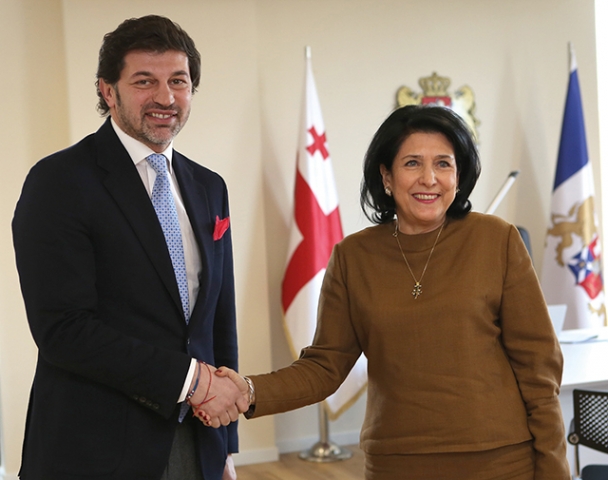New NDI Polls: Georgians Assess Current Situation in the Country
The National Democratic Institute and CRRC-Georgia released new poll results on January 16. The subjects of research vary from politics to religion, showing the attitude of Georgians, and the changes seen in the last few years, towards them.
The poll results reveal that negative attitudes towards government officials and different institutes in the country have grown. In particular, negative assessments of the prime minister, president, courts, and parliament, have raised, with Kakha Kaladze, the Tbilisi City Mayor, remaining the only exception, and seeing him continuing to have a net positive assessment.
13% of the NDI respondents evaluate Kaladze's job performance as “very good”, 31% as “good”, 32% as “average”, 16% as “bad” and 6% as “very bad.” The poll suggests that Kaladze has the highest favorability rates among the politicians.
The same survey shows that 4% of the NDI respondents evaluate the job performance of Georgia’s Prime Minister Giorgi Gakharia as “very good”, 17% as “good”, 34% as “average”, 24% as “bad” and 10% as “very bad”, while 10% chose not to answer. Dissatisfaction in the Prime Minister’s work has increased among Georgian citizens, and since 2015, the PM’s assessment is the lowest. In July of 2019, when Mamuka Bakhtadze held the position of Prime Minister, 28 % of the participants assessed him negatively. Gakharia’s rating has fallen lower, with 35% assessing him so.
The President’s rating is also not positive. The poll suggests that President Salome Zurabishvili is the most disliked leader of the country. 1% of the interviewed respondents evaluate her work as “very good”, 8% as “good”, 31% as “average”, 34% as “bad”, 20% as “very bad”, and 6% chose not to answer. It’s worth mentioning here that the NDI polls also revealed the public’s attitude to Georgia’s former leaders: Bidzina Ivanishvili, who used to be Prime Minister, and Mikheil Saakashvili, Georgia’s ex-President. 26% of the participants evaluated Saakashvili positively, while Ivanishvili’s positive assessment stood at 17%.
Overall, 64% of Georgians evaluate the current government’s performance as “bad.”
When asked how they would evaluate the performance of the current government, 64% of respondents said that it was poor, 30% answered "good", while 5% chose not to answer.
The NDI polls have also affirmed the public’s support for the West. 82% of respondents consider the stated goal of the Georgian government to become a member of the EU acceptable, while 10% of them view EU membership as undesirable. Compared to last year’s results, 5% more respondents are in favor of Georgia’s EU membership, as in 2019, 77% deemed it acceptable.
NATO membership is also in demand for the majority, with 74% deeming it desirable, and 14% answering negatively, while 11% said they were undecided.
For the first time in the decade, 53% of respondents stated their belief that Georgia is developing in the wrong direction. Only 19% assessed Georgia’s development positively, and 24% think that the country is static, not changing at all.
The rating of the Georgian Church has also fallen. Just 50% of the respondents assessed the Georgian Church’s work positively. In the last five years, this rating is the lowest seen for the Church. Between 2015 and 2019, the positive assessment of the Georgian Church dropped by 25%. The change was drastic between last year’s summer and autumn, too: in July, the Church’s positive rating was 64%.
The results reflect data collected from November 19 to December 13, 2019, through 2,180 face-to-face interviews with a nationwide representative sample of Georgia’s adult population, excluding occupied territories of the country.
NDI’s survey work is funded by UK Aid. The poll was carried out by CRRC Georgia.
NDI is an independent, nonprofit, nonpartisan organization working to support and strengthen democratic institutions worldwide through citizen participation, openness and accountability in government.
By Nini Dakhundaridze












